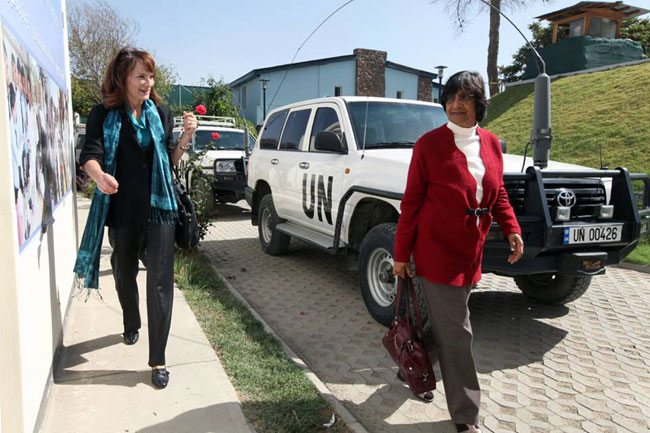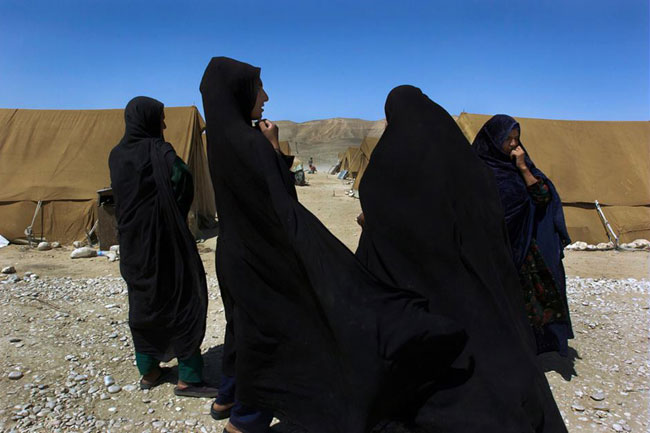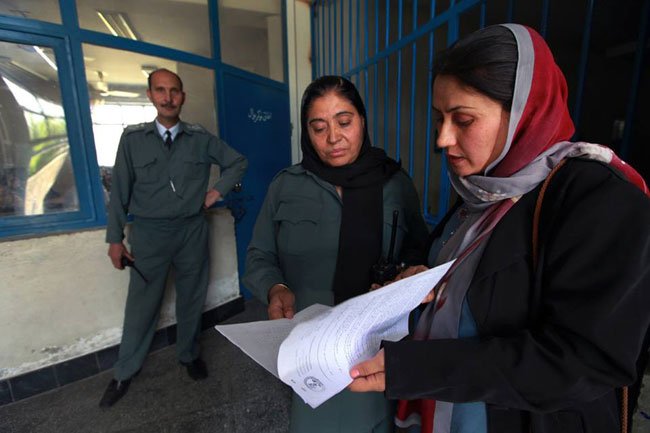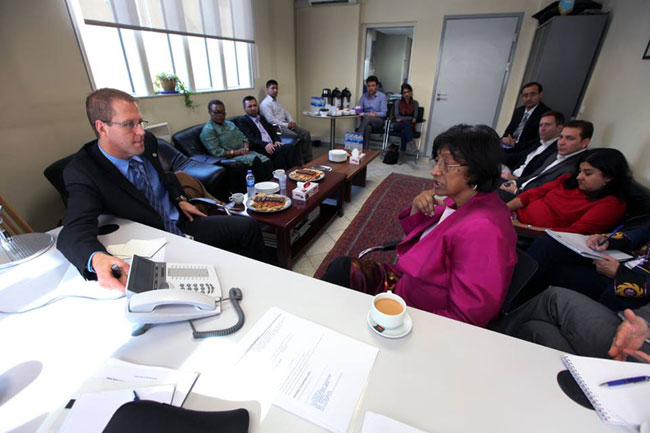Human rights gains in Afghanistan remain fragile – UN top official
“Afghanistan is clearly at a critical juncture with the ongoing political, security and economic transition concluding in 2014 – all of which will have an impact on the human rights of its citizens,” the High Commissioner for Human Rights, Navi Pillay, said at a press conference in the capital, Kabul.
“There have been some distinct human rights achievements during the past 12 years, but they are fragile, and many Afghans are expressing fears that the overall human rights situation is deteriorating on several fronts.”
Ms. Pillay said that during her visit, she focused on ensuring that gains on human rights are consolidated and not undermined. She stressed that his will require determination and courage on the part of the Government as well as civil society and the media.
“They will need to stand firm, not only against rising political pressures as the election approaches, but also against the ominous background of a sharp climb in the number of civilian casualties during the first six months of 2013.”
According to a report released by the by the UN Assistance Mission in Afghanistan (UNAMA), the number of civilians killed or injured in the first half of 2013 rose by 23 per cent compared to the same period last year, owing mainly to the increased use of improvised explosive devices (IEDs) by insurgents. The report documented 1,319 civilian deaths and 2,533 injuries – a total of 3,852 civilian casualties – in the first half of the year.
Ms. Pillay said that although the vast majority of civilian casualties are caused by anti-Government forces, the number of civilian casualties caused by actions of various Afghan security forces including police has also risen, and she stressed the need to try to reduce the numbers of civilians killed and injured during military and police operations.
Violence against women is another pressing issue in the country, Ms. Pillay said, noting that while the passing of the law on the Elimination of Violence against Women was a very significant achievement, its implementation has been slow, especially in rural areas, with police, prosecutors and courts being reluctant to enforce it.
“Violence against women remains endemic, and I have urged the relevant authorities to do their utmost to speed up and improve the implementation of this important law, which President Karzai passed by decree in 2009,” Ms. Pillay said, adding that she was encouraged by the commitment shown by senior Government officials to advance women’s rights and improve the implementation of the law.
During her visit, Ms. Pillay met with senior Afghan officials including President Hamid Karzai. She also held talks with the Chair of the Afghanistan Independent Human Rights Commission, members of civil society and the diplomatic community.
Ms. Pillay expressed concern to Government officials over the future of the Afghanistan Independent Human Rights Commission (AIHRC), which could potentially lose its ‘A’ Status under the Paris Principles after the appointment of five human rights commissioners.
“There are real concerns – which I share – that the recent process leading up to the appointment of five new members of the Afghanistan Independent Human Rights Commission was sufficiently flawed for it to lose its “A” Status,” she said. “This would be a very serious and regrettable setback for one of the current Afghan Government’s most notable achievements in the area of human rights.”
Ms. Pillay said she made a strong plea to Mr. Karzai to do his utmost to strengthen the position of the AIHRC before it comes up for review in two months’ time.
“I urge an extra effort by the President and his Government to ensure that the human rights gains of the past 12 years are not sacrificed to political expediency during these last few months before the election,” Ms. Pillay said.
Afghanistan is scheduled to hold presidential and provincial council elections in April next year, and preparations are underway to ensure a smooth transition. Today, UNAMA acknowledged the appointments of the Independent Electoral Complaints Commission (IECC), stressing it plays an important role as an impartial dispute resolution mechanism.
“These appointments represent an important next step in ensuring the preparations for the presidential and provincial council elections on 5 April 2014,” UNAMA said in a news release. “Rapid establishment of the IECC’s operational structure is now required as it prepares to adjudicate objections to candidate eligibility.”
UNAMA added that donors and the international community stand ready to provide, at the IECC’s request, technical and financial assistance to support the complaints commission.










